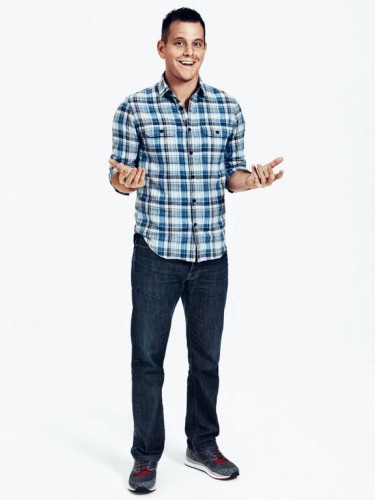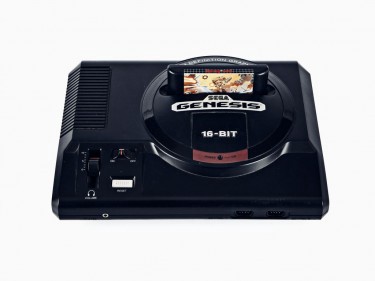Funny Guy Dave Rubin Answers Our Questions
by Awl Sponsors
We team up with Braun to talk to Dave Rubin about his favorite Built to Perform possession.
“In a high performance world, Braun creates innovative designs built to last 7 years. Braun profiles 15 innovative guys in an intimate look at their life passions and the unique objects of design and durability that power their life.”

Photo: James Ryang
Making his way from the bottom to the top, Dave Rubin propelled his stand-up comic career from the honing grounds of The Comedy Cellar to co-founding the New York City-based club The Comedy Company. In a maneuver equal parts hustle and ingenuity, Rubin teamed up with a band of fellow Comedy Cellar alumni to create a secret filming of a news program parody ironically staged at the famed NBC studios.
With a nod from NBC, the public access program prevailed as the cheekily coined, “Anti-show.” After publicly coming out as gay in 2006, he became known for turning the gay stereotype on its head. Rubin’s irreverent mix of politics, celebrity interviews and current events transcends sexuality, serving as the genesis for the hit comedy podcast, The Six Pack. Collaborating with radio host Ben Harvey, The Six Pack features a cross-section of guests and topics, catapulting it into the top 10 most downloaded comedy podcasts on iTunes.
While the future basks in the bright glow of touchscreens, Dave Rubin waxes nostalgic with his Built to Perform possession, a 1989 Sega Genesis that serves as a 16-bit throwback to a simpler time.
1) How did you first become a comic and what was one of the hardest things about breaking into the industry?
I’ve been doing stand-up for about 14 years, which seems like a long time to everyone except stand up comics. It’s an art that takes relentless reinvention to get really good and it’s the only art form where you have to practice in front of a live audience. Imagine if a painter or a sculptor had to get immediate approval from an audience right after a stroke of the brush or a move of the clay. Stand-up is special that way and it’s also probably why so many comics are bonkers.

Photographer: James Ryang
As for breaking into the industry, I’d say the hardest part is staying true to yourself while trying to find an angle that’ll lead to success. I think I’ve finally found the right route. Now I just have to not screw it up.
2) How did you meet Ben Harvey and what inspired the podcast show, The Sixpack? Why do you think the two of you work so well together?
Ben and I met at a network that needn’t be mentioned — kinda like Lord Voldemoort. They tossed us in a room and said do something and we just got right to it. Four years later, I’m incredibly proud of how we’ve created a show that has found a fantastic audience, built a successful business and given us room to explore creatively without having to check-in with “the man” (though, who is the man, really?).
3) What do you think sets The Sixpack apart from other LGBT themed shows?
We happen to be gay, big damn deal. I’d much rather people know that we’re funny, relevant and interesting. But it’s weird for me to just say that, so I’d say check out the show and find out for yourself. I’m sure we have a website or something.
4) Who are some guests that you think really stand out in the LGBT community and who has been someone that you look up to?
My favorite guests have mainly been other comedians and we’ve had a ton of great ones. Joy Behar, Richard Lewis, Sandra Bernhard and Jackie Mason are just a few. For me, it’s not that important that they do anything gay in their act, they’re doing enough by coming on a show that is aimed at the gay crowd.
Though she hasn’t been on the show, I once tweeted at Rosie and she showed up at the restaurant I was at and we shared a beer. That’s kinda better than being on the show.
5) Your prized possession is a Sega Genesis 1989. Where were you when you first bought it and how long have you had it for? Why is it your most prized possession?

Photographer: James Ryang
I remember the exact day since it was my 13th birthday, June 26th, 1989. My Mom took my brother and I to Toys ‘R Us and we bolted down to the video game aisle, grabbed the paper that had the price on it and ran to the register. I totally remember the guy going to the locked-up glass video game section and taking out the system.
It really is my most prized possession because I can fire that thing up at any time and suddenly be transported back to a world that is long since gone. None of my adult problems exist in that 16-bit universe. It’s just about whether the Lakers will beat the Celtics in NBA Live or how many coins Sonic can snag.
It’s a time for me to shut off my brain and just jump back to something I once loved. It’s a slightly less poetic Rosebud from Citizen Kane, I think.
6) What made Sega better than Nintendo?
It was the next step in evolution. We went from 8-bit Nintendo to 16-bit Sega Genesis. That’s double the bits! As Kramer said in Seinfeld, “with air conditioners, it’s all about BTU’s.” For early ’90s video games, it was all about bits. Actually, I’m not sure what it’s about anymore. Now you have to strap something on and break a sweat while playing. That ain’t right.
7) In one sentence, tell us why you couldn’t live without your Built to Perform possession.
I couldn’t live without my Sega Genesis because I need something that I can still beat my nephew in.

